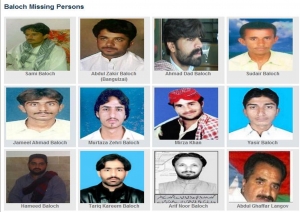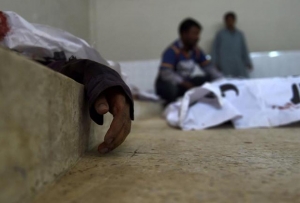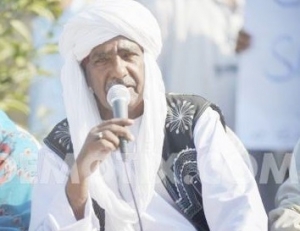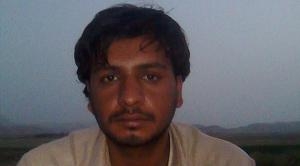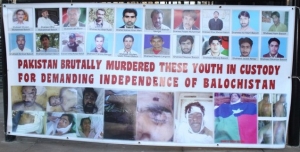By Mohammad Akhtar Mengal
Islamabad and its powerful establishment are committing Balochcide, a systematic act committed with institutional intent to destroy Baloch society. Islamabad’s brutalities and Hitler-like policies against the Baloch people will not deter us from continuing our struggle nor will these terror tactics result in suppressing our feelings
On August 24, 1941, two months after Germany invaded the Soviet Union, British Prime Minister Winston Churchill delivered a radio broadcast. Describing the barbarity of German police troops, as he called the SS, he said, “We are in the presence of a crime without a name.”
And today Pakistan, a country that came into being in the name of Islam, is using the worst inhuman methods and committing unprecedented “crimes without a name”. The crimes committed against a particular ethnic group by the dominant ethnic community and its institutions need a new name — not ethnocide or genocide. Simply, Islamabad and its powerful establishment are committing Balochcide, a systematic act committed with institutional intent to destroy Baloch society and eliminate its educated youth and politicians.
Balochcide is not limited to enforced disappearances and throwing away their tortured and bullet-riddled mutilated bodies. These practices include eliminating the few available moderate political Baloch voices one by one, destroying the very unique and liberal features of Baloch society, polluting the Baloch political system by supporting Taliban elements and encouraging a culture of “crimes in uniform”.
If you go through the reports and evidence compiled and developed by reputable human rights organisations, think-tanks, experts, writers and researchers and then put it beside other information available — widely reported upon by the media and by others — we simply conclude that genocide (Balochcide) has been committed in Balochistan and that the government of Pakistan bears responsibility.
The so-called civilised international community’s silence is adding to the severity of the human rights crisis. I am addressing this to the powerful west: just imagine your reaction if someone in uniform unlawfully abducts your child due to a suspicion that he believes in the political freedom of his community, and he is taken to an unauthorised detention centre and tortured for months without any access to family or a lawyer. Imagine in that kind of extreme environment, severe pain and suffering, bleeding and state of lifelessness, your son, in order to get rid of this slow motion death, agrees and accepts any kind of allegation and blame that the perpetrators put on him. And after accepting all these ‘allegations and crimes’, instead of producing him in a court — the perpetrators kill and dump him — exactly on Christmas day, a day meant to celebrate and enjoy life in Christian culture, not mourn. Furthermore, to inflict this pain on the family and community if the murderer leaves a paper with the dead body that reads: “A Gift of Christmas for the people (of a particular community).”
This is exactly what happened on this Eid. not with one, two or three, but six families, communities and regions in Pakistan’s ‘Darfur’ (Balochistan).
Six innocent young Baloch Student Organisation (BSO) activists, including a journalist, were killed and their bullet-riddled bodies were found in Khuzdar, Turbat, Gwadar, Kalat and Mastung during the three days of Eid. The slaughterers left a paper with the dead bodies that read: ” A Gift of Eid for the Baloch.”
The victims of extra-judicial killings were identified as Lala Hameed Baloch, president of the Baloch National Movement (BNM), and Hamid Ismail. Hameed Baloch was a journalist and a member of the Gwadar Press Club. Two bullet-riddled bodies of Bashir Ahmed Lehri and Inayatullah, who had been missing for more than two months, were found in Kad Kocha area of district Mastung. The badly tortured and bullet-riddled body of a university student, Samiullah Mengal, was found near Ferozabad area of Khuzdar. Another body was discovered on Friday from Kapotu area of Kalat district and has been identified as that of Nasurrallah Baloch. “Nasurrallah had been missing for the last two months and had been whisked away by government functionaries,” relatives alleged (‘Six missing persons found dead in Balochistan’, Daily Times, November 20, 2010).
All these killings came after Amnesty International’s recent demand that the government of Pakistan “must” investigate the torture and killings of more than 40 Baloch leaders and political activists over the past four months. “Activists, politicians and student leaders are among those who have been targeted in enforced disappearances, abductions, arbitrary arrests and cases of torture and other ill-treatment. The violence takes place against a backdrop of increasing political unrest and Pakistan army operations in Balochistan, south-western Pakistan,” said the statement.
Sam Zarifi, Amnesty International’s Asia-Pacific Director, was quoted in the statement as saying that Islamabad must act immediately to provide justice for the growing list of atrocities in Balochistan. “Baloch political leaders and activists are clearly being targeted and the government must do much more to end this alarming trend,” he observed.
Is it not the case that killing and dumping of a large number of Baloch people in such a brutal fashion by military, paramilitary and intelligence agencies in Balochistan constitutes genocide?
Is it not that the criminal silence of the apex courts and their human rights champion judges shows that the justice system too is working on an institutionally and ethnically agreed policy of ‘kill and dump’ the Baloch people?
No doubt Islamabad’s brutalities and Hitler-like policies against the Baloch people will not deter us from continuing our struggle nor will these terror tactics result in suppressing our feelings. Our forefathers resisted for centuries and we will do the same to teach our children that truth and freedom is more important than the consequences.
The writer is president of the Balochistan National Party and a former chief minister of Balochistan. He can be reached at akhtarmengal@hotmail.com

